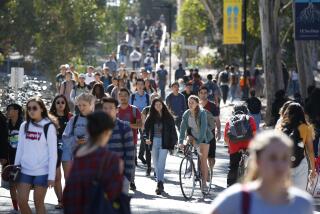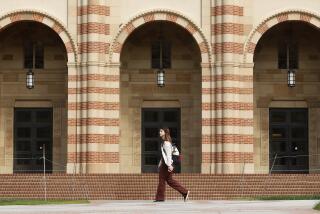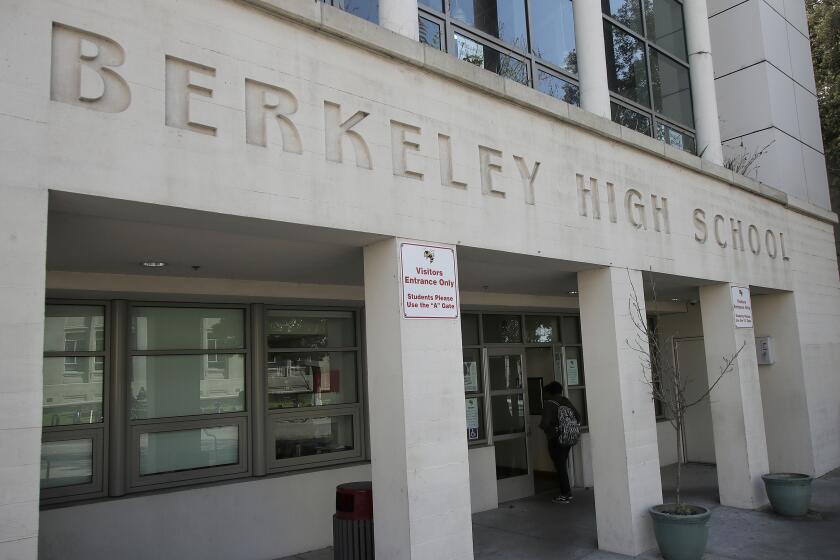UC should prepare for online classes, limited dorms beyond fall, UC Health chief says
The University of California’s top health executive has told UC officials to prepare to continue online learning and limited access to campus beyond the fall as the COVID-19 pandemic will probably cause at least another year of disruption to university operations.
“This is not something that will go away quickly,” Dr. Carrie L. Byington, who heads UC Health, told regents during their two-day online meeting this week. The university’s $13-billion health enterprise includes 19 health professional schools and six health systems, five of them academic medical centers.
So far, UC campuses have not announced plans for winter and spring — unlike the California State University system, which said this month that campuses will stay primarily online through the rest of the academic year.
But Byington told The Times on Thursday that she has discussed with top UC officials the possible need to continue largely online operations.
“Yes, I have discussed the need to prepare for continued distance learning and decreased density on campuses beyond the fall term with the chancellors, president and regents,” Byington said. “Much will depend on the effectiveness of the measures put in place on each campus to control transmission during the fall semester/quarter and on the trajectory of the pandemic in California and the U.S. If we can control transmission on our campuses and the trajectory of the pandemic is improving, it may be possible to increase density.”
UC Berkeley reported 61 new cases of the coronavirus between Aug. 26, when fall classes began, and Sept. 16. Only two cases involved students who live in campus dorms, and all transmissions have been traced to off-campus encounters, a spokeswoman said. UC Merced has reported no new cases, Chancellor Juan Sánchez Muñoz told regents. Berkeley and Merced are the only two of UC’s nine undergraduate campuses that have started fall term.
The pandemic’s cost to UC campuses and medical centers has been steep. Chief Financial Officer Nathan Brostrom said UC has taken a $2.2-billion hit during the pandemic, including losses in revenue from medical services, housing and dining, and added expenses for online teaching technology and medical and cleaning supplies. UCLA took the greatest hit at $653 million, and UC Merced the smallest at $16 million between March and August, Brostrom said.
In the first glimpse of how the pandemic is affecting enrollment, Berkeley and Merced have seen no drop in California students this fall, regents were told.
But Berkeley reported enrollment declines of about 550 out-of-state students, half of them seniors, and more than 200 graduate students, many of them international students in law and engineering programs. Many of them had indicated they planned to enroll but withdrew just before fall classes started, UC officials said.
Those numbers represent a tiny fraction of Berkeley’s 43,000 students. But nonresident students are an important source of revenue because they pay three times the tuition and fees that Californian do and are not eligible for need-based financial aid.
UC’s seven other undergraduate campuses start fall classes Oct. 1.
More to Read
Start your day right
Sign up for Essential California for news, features and recommendations from the L.A. Times and beyond in your inbox six days a week.
You may occasionally receive promotional content from the Los Angeles Times.







